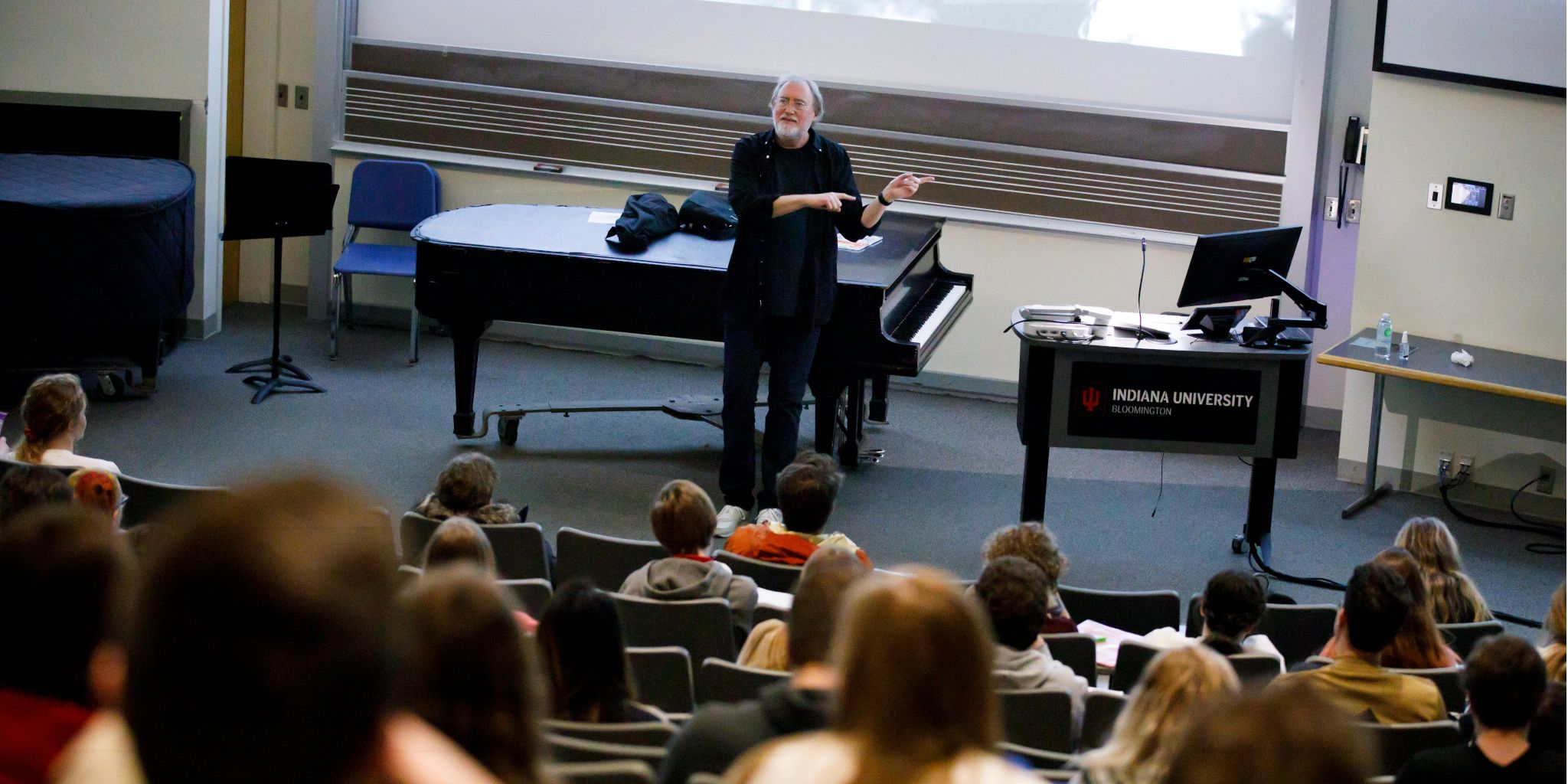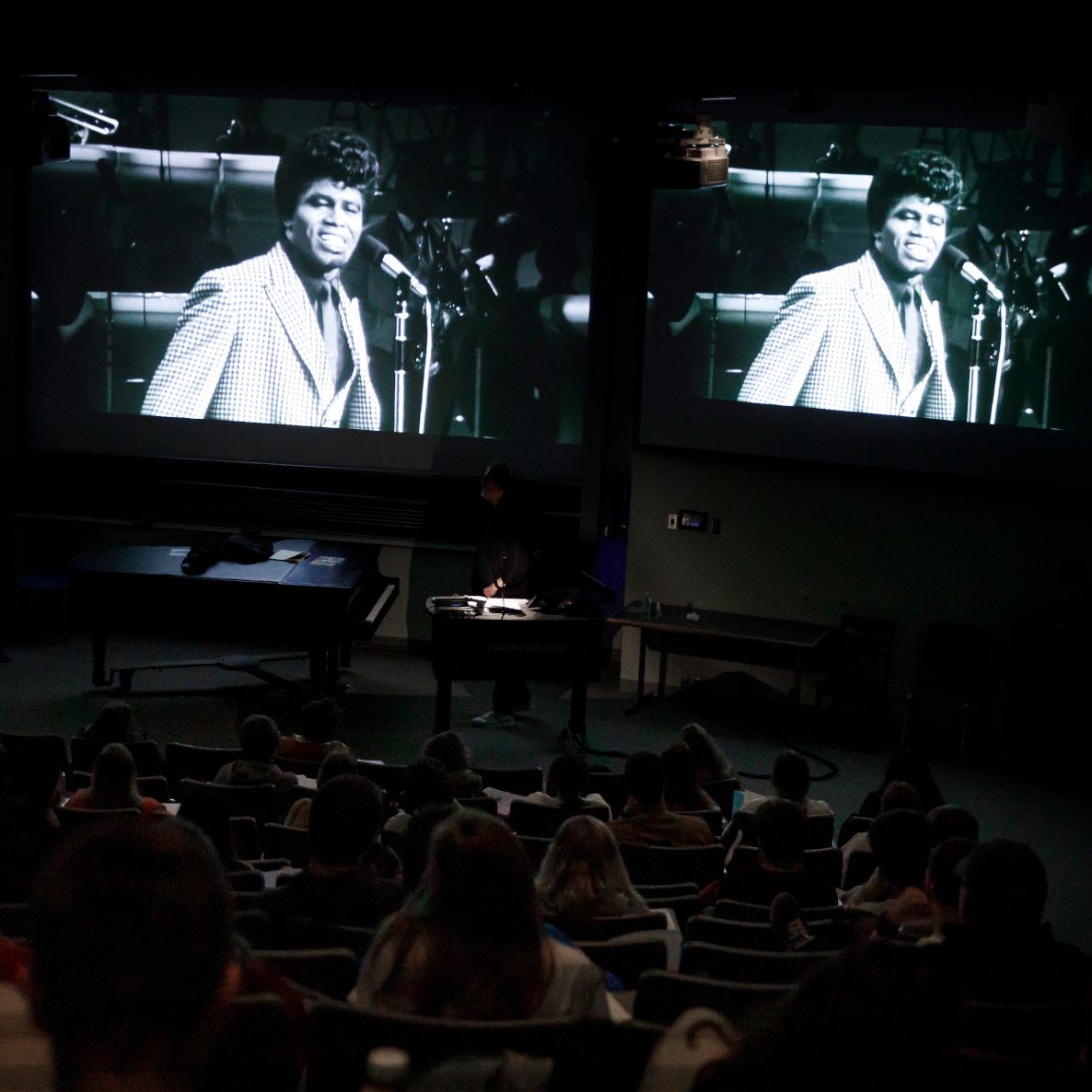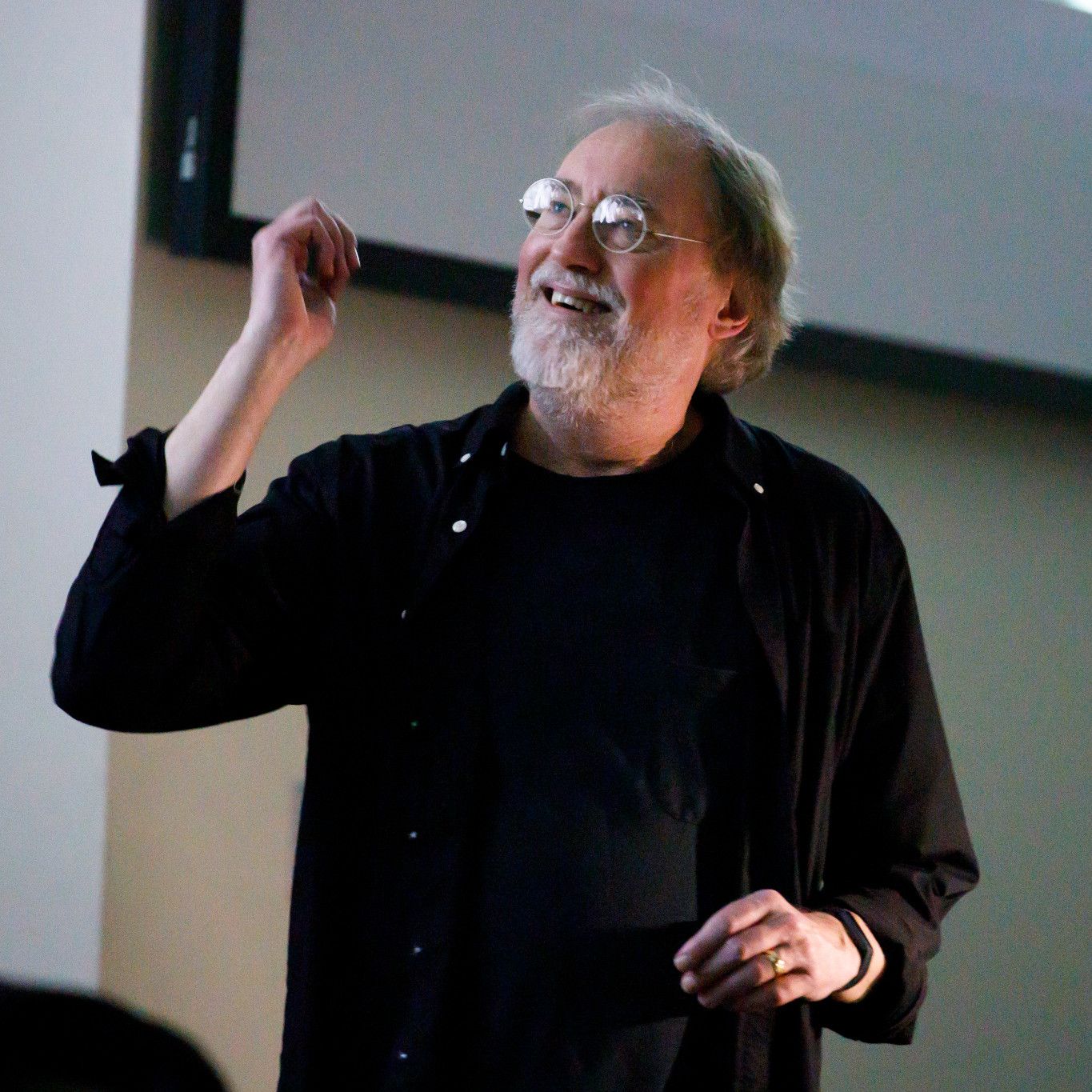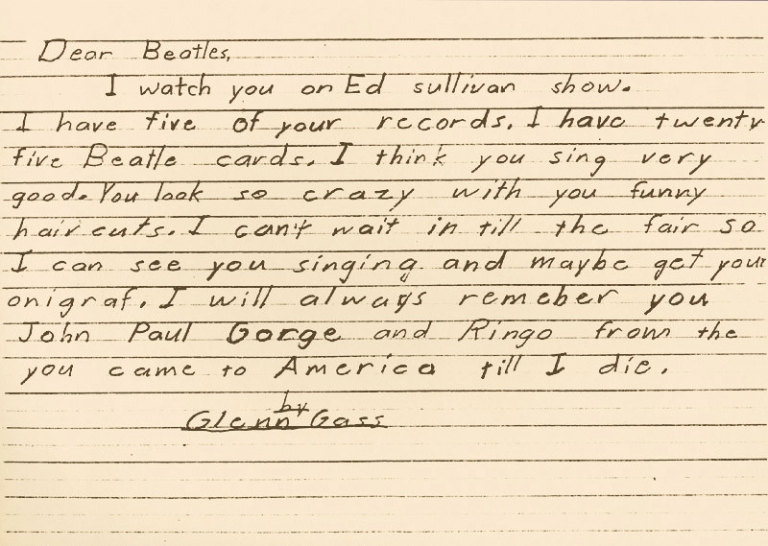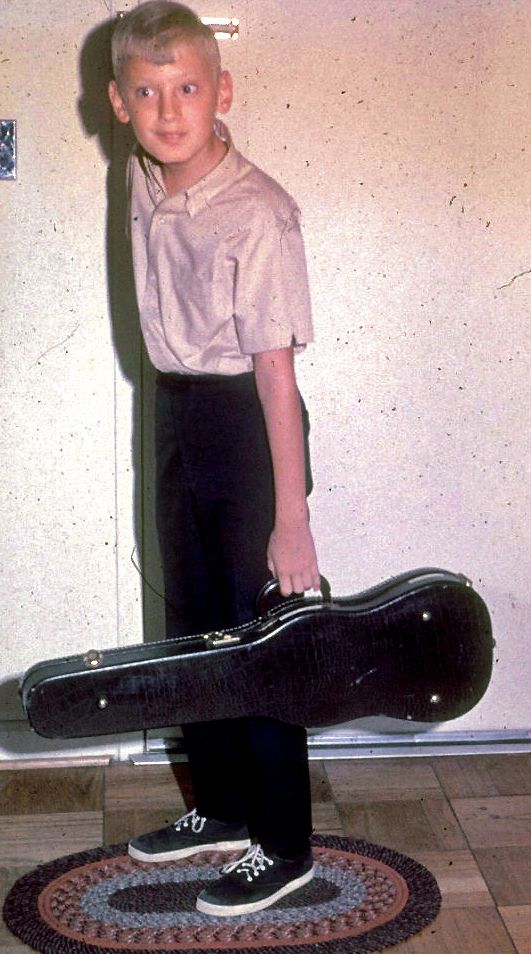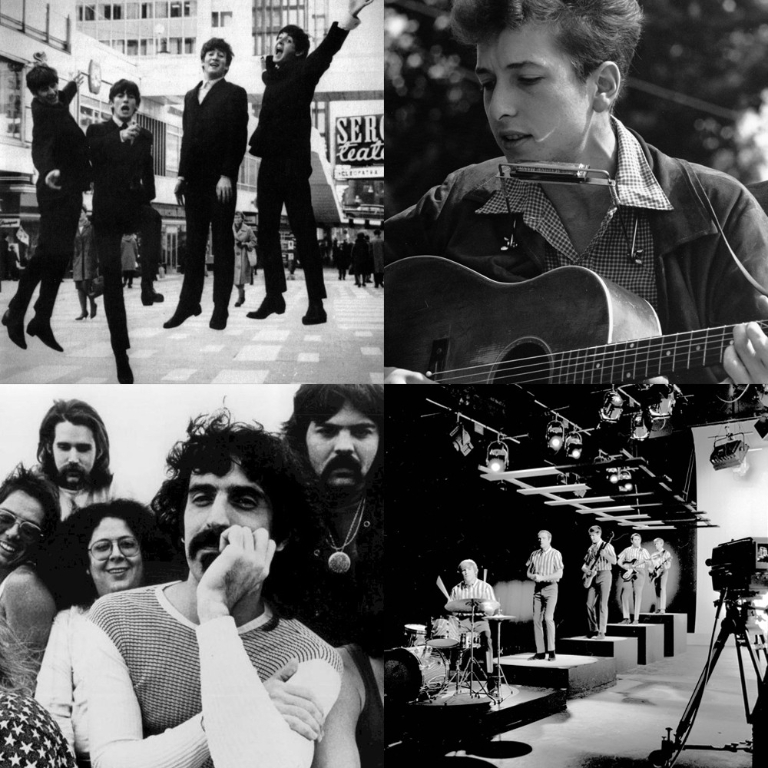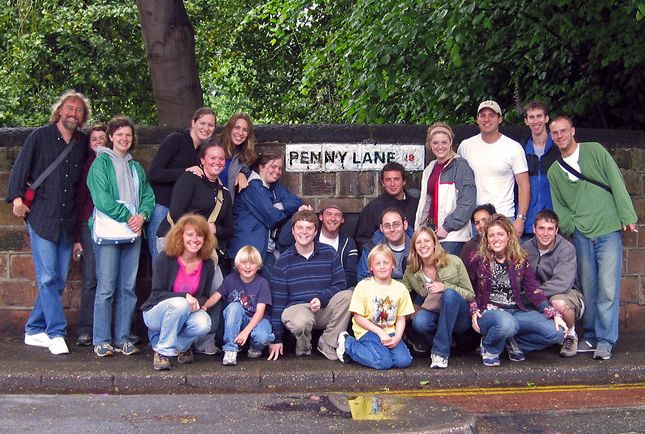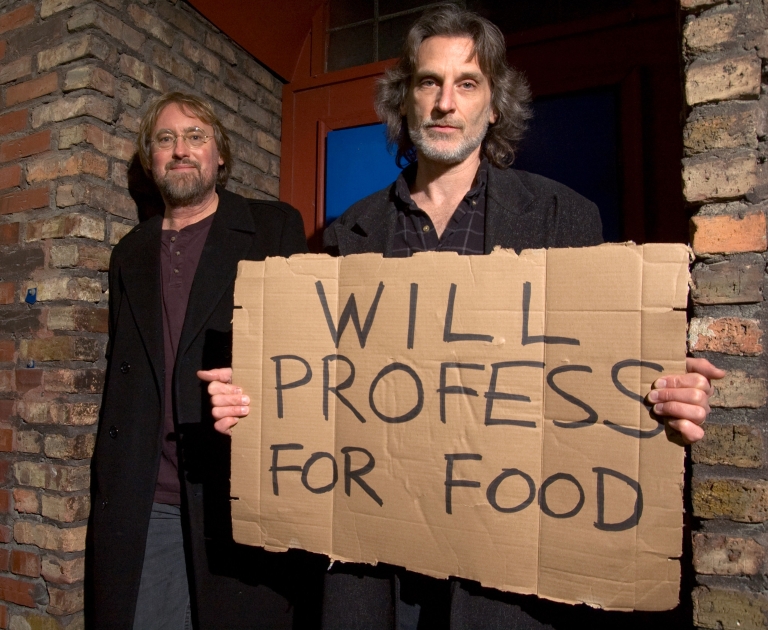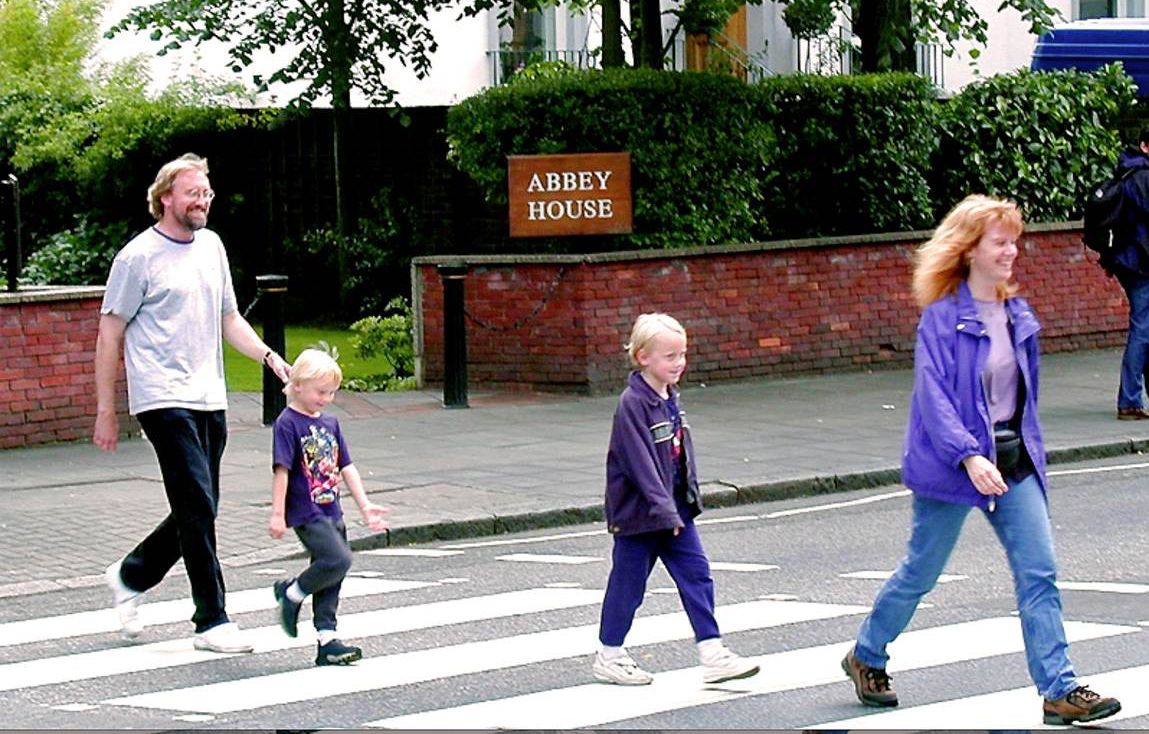Glenn Gass arrived at Indiana University Bloomington more than 40 years ago with a background in classical music and composition. He'll retire at the end of the semester having created a modern masterpiece.
In rock history.
Known as "Doctor Rock," Gass created the first rock history classes offered by a school of music, the IU Jacobs School of Music.
The classes became so popular that Gass has taught more than 60,000 students in his career, and often has been voted the most popular professor on the IU Bloomington campus.
The success of the classes led to additional rock history courses and eventually the creation of a certificate program at IU. Other colleges and universities have seen that success and popularity and added rock history courses to their offerings.
Gass' passion for the music and his classes also has inspired some students to go on to successful careers in the music industry.
"Glenn blazed a trail in teaching rock music, and no one I've ever seen has come close to him," said Anthony DeCurtis, a contributing editor at Rolling Stone magazine who earned a doctorate in American literature at IU and has lectured in Gass' classes. "Best of all, he is energized by the music and passionate about it.
"However sophisticated his thinking about it, he makes his knowledge visceral so that his students could feel it. The level of talent, conviction and insight he brought to his teaching inspires me to this day."
Description of the following video:
[Video: Glenn Gass appears and speaks]
I was a graduate student planning to be a classical music composer. And I started teaching rock history to pay my way through grad school.
[Video: A montage of Gass teaching over the years]
Gass speaks in voiceover: And it sort of turned into a career I thought I'd keep 'til I didn't get tenure, and then do something else. And then I got tenure, and got promoted, and I'm retiring. And I don't know; somehow it turned into a life. And somehow it's still fun.
[Video: Gass appears and speaks]
In 1983, we had two classes you could take as a non-major: Music apprec., studying Beethoven, and then my rock history class, and then Beatles.
[Video: A montage of Gass teaching over the years]
Gass speaks in voiceover: And now we've got a whole program -- you can get a minor in music as a non-music major. It is the IU School of ... Jacobs School of Music. I think like a lot of us here, we take for granted where we are ...
[Video: Gass appears and speaks]
... but we are at the -- arguably the world's greatest school of music.
[Video: A young Gass stands before the class, with an overhead projector]
Gass speaks in voiceover: To be able to do what I do, and do it here -- that's really special.
[Video: Gass appears and speaks]
I've never stopped loving it because I've never stopped loving the music that I play, ...
[Video: A modern Gass stands before the class]
Gass speaks in voiceover: ...and every year I get a new group of students that have never heard Chuck Berry before.
[Video: Gass appears and speaks]
So it's fun all over again for me, and I get to hear my favorite music and cry in class.
[Video: Shots of Gass teaching]
Gass speaks in voiceover: I just get to be 14 my whole life, you know, so that's ... whether that's good or bad, it works for me. When I get emotionally involved with the music, that's when it matters to me.
[Video: Gass appears and speaks]
And that is actually when it matters to the students too, because they can tell if you're phoning it in, like, I'm just talking about, you know, the Shirelles because we have to, but if you actually really love "Mama said, there'll be days like this," it's like, oh, that's, that's, that's, you know, aside from special events and special guests kind of things. That's, that's the reward for me. I mean, I really do love this music. I don't try to teach it as a history class. It's really an appreciation class ...
[Video: Shot of Gass looking up and out toward a light, smiling broadly]
Gass speaks in voiceover: ... which means that I get to appreciate it every time, too.
[Video: Gass appears and speaks]
Bottom line, my job is to get excited about the music, ...
[Video: A very young Gass sits on his desk before the class, wearing an IU basketball T-shirt and a denim button-down, speaking enthusiastically]
Gass speaks in voiceover: ... if I expect them to. If I can't, then it's ... it's hopeless. So I do get excited about it ...
[Video: Gass appears and speaks]
... and it's not fake, you know -- I love it.
[Video: black]
[Words appear in a series of bubbles, like text messages: Glenn Gass - History of Rock n Roll. his love of it was infectious.]
[Words appear: Same]
[Words appear: Yes! Agreed! Think about that class often! In fact was oddly thinking of it this morning. One that sticks with you. goosbumps every single class.]
Gass speaks in voiceover: That's just nice to hear.
[Video: Glenn Gass appears]
I think every teacher dies to think that there are students out there thinking that. I know there are a lot that aren't, but to know that there are some, that ... that means the world. I mean, that's, that's ... your reward as a teacher is that, so, you know, I'm really grateful that I've been able to have that and receive that. I'm not sure that most chemistry teachers get that because it's chemistry, even though they're great -- I know they are -- but because it's rock-and-roll, they somehow feel like oh, we share this bond, and so like that's, you know, that that's like, an unearned run for me, but I'll, I'll take it.
[Video: Students come to the front of the classroom to hug Gass as the rest of the class stands and applauds]
[Video: Fade to black]
[Video: The Indiana University trident appears]
[Words appear: Indiana University]
[Words appear: indiana.edu]
[End of transcript]
Gass, Rudy Professor and Provost Professor of Music in the Music in General Studies program, said it was important to teach classes about rock 'n' roll in a way that didn't kill the passion the music creates. First and foremost, he wanted students to appreciate the music.
"It was always my goal to teach a rock class so that if Keith Richards wandered in, he'd like what he heard," Gass said.
Although the Rolling Stones' Richards has never wandered in, many other rock stars have participated in one of his classes: John Mellencamp, Lou Reed, Bo Diddley, Neil Young and Booker T. Jones of Booker T. & the M.G.s, to name a few.
But it was the Beatles who hooked Gass on rock 'n' roll and started him on his journey of teaching rock history.

